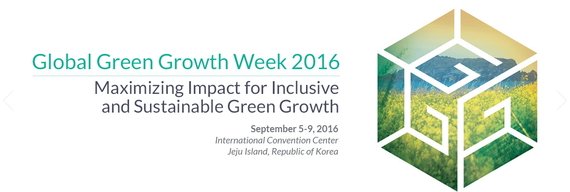When opening the Climate Summit in Copenhagen, I quote one of my favorite Guyanese creole sayings: wan wan dutty build dam. Put differently, every house must sit on solid foundations and we build it one brick at a time. Many years later, the Paris Climate agreement brought us the international breakthrough many have fought for so hard: near universal action to address climate change and keep global average temperature well below 2 degrees centigrade.
Of course it was the euphoria of the outcome that made the headlines. But the Paris agreement also noted some important points of caution. First that the commitments made in Paris are not enough to achieve the temperature goal, second that early action is imperative and thirdly that the provision of finance, technology and capacity support are essential to enable enhanced pre-2020 action by developing countries. As early as 2018 countries will meet to take stock of efforts taken to meet the long term goal.
If Paris was all about setting the goal(s) and drawing the boundaries of the pitch, the next conference in Marrakesh will be about defining the rules of the game. That is critical if the 2018 stock-taking is to provide the confidence to take next and bolder steps towards achieving the long-term goal. As the Guyanese also say in creole: clath ah easy fuh dutty but hard fuh wash (having achieved a goal, it is difficult to retain it)!
As an organization dedicated to working with its members to achieve a greener model of growth, the Global Green Growth Institute (GGGI) is now doing everything to help countries understand how international climate finance can be made to work for climate action, remove the barriers that prevent investments in renewables, translate climate ambitions into bankable projects, build national finance institutions to support this and ensure that growth is more socially inclusive.
In line with an effort to identify practical solutions to sustainability challenges, GGGI and its partners will organize the Global Green Growth Week (#GGGWeek2016), on September 5-9, on Jeju Island, Republic of Korea. The sessions throughout the five-day event will focus on three key topics: 1) mobilizing finance for climate action and green growth, 2) driving renewable energy and green investments in Asia and 3) improving the livelihoods of and creating a green and inclusive economy for the poor.
First, finance is an important issue. In principle, sufficient financial resources from the public and private sectors are available to support developing nations. However, not enough attention has been paid to enhancing the capacity of the system to absorb the capital in ways that are beneficial to the poor in developing countries and acceptable to those that bring the capital. The Global Green Growth Summit (GGGS) aims to explore ways to unblock the barriers to capital flowing to emerging markets, develop innovative international financial instruments for green growth, strengthen national financing vehicles and build solid project proposals. It is critical to find blended financial models and innovative solutions to mobilize climate finance.
Second, transitioning away from fossil fuels to renewable energy will bring health and financial benefits as well as enhance employment opportunities. Asia is claiming to be going green, but according to the International Energy Outlook 2016, China and India are projected to be the top two coal-consuming countries together with the United States, accounting for more than 70% of world coal use. For instance, in 2012, China accounted for 50% of world coal consumption and its coal use is expected to grow through 2025. Coal is expected to continue to play a prominent role in Asia's energy consumption due to the abundant regional endowment of coal and low extraction costs.
On a brighter note, energy demand is projected to almost double in the Asia and Pacific region by 2030. This rapid rise in demand is a reflection of the dramatic economic growth in countries such as China and India. Countries in Southeast Asia have also been enjoying remarkable economic progress in recent years while solidifying their position as a major driver of global growth in energy demand. Investments in renewables have now overtaken investments in fossil fuel and renewable investments in developing countries have significantly overtaken those in industrialized countries - all of which is positive. But the reality remains that making more money available and decreasing costs of technology is not enough to address the challenges of climate change.
The Asia Regional Policy Dialogue (ARPD) will examine the success factors and barriers to scaling up the transition from fossil fuel to renewable energy. The discussions will be tailored to the Asian context, in line with the goal of building consensus among major stakeholders on strategic, actionable solutions to be taken to promote clean energy.
Third, more emphasis needs to be placed on creating better lives and livelihoods for poor people in society by using green growth policies. Billions of people have been lifted out of poverty, but the gap between the rich and poor is increasing. 90% of urban population growth this century will occur in developing countries, predominantly in Africa and Asia and a significant proportion of that growth will be in cities that don't exist yet. Although the world has made significant progress in reducing poverty in the last decade, inequality still persists, with large portions of humanity, particularly in developing countries, lacking basic sanitation, access to electricity, and clean drinking water.
Growth in developing countries will continue, yet this growth needs to be green and inclusive. The discussion topics for the Green Growth Knowledge Platform (GGKP) Annual Conference include examining challenges of inclusive green growth, exploring the climate change and poverty nexus and identifying whether economic growth can be inclusive and green.
#GGGWeek2016 will serve as a platform to generate innovative solutions, leverage green growth opportunities and promote delivery of growth that is pro-poor, inclusive, and environmentally sustainable.
Click here to learn more about #GGGWeek2016.
